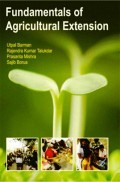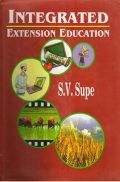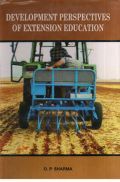This book Useful for Agriculture Extension.
I: THEMATIC ASPECTS
1. Food and Environmental Security Vis-A-Vis Indigenous Knowledge Systems
II: COMMON PEOPLE'S KNOWLEDGE
1. Indigenous People and Wild Food: Perspective of an Ethnobotanical Study from Indian Desert
2. Indigenous Technology for Food Processing By the Tribes of Dima Hasao (North Cacher Hills) District of Assain for Social Security
3. Traditional Food Preferences and Food Security with Reference to Indigenous Knowledge System of Arunachal Tribes in India
4. Indigenous Fishing Knowledge of Fishing Community along East-Coast near Bay of Bengal: An Approach for Sustainable Food Security-A Case Study in Odisha
5. Livelihood Patterns of Tribals: A Study on Transition from Traditional to Modernity
6. Indigenous Knowledge in Eco-Safe Plant Protection, as an Aid to Low External Input Sustainable Agriculture (Leisa) and Biodiversity in West Bengal, India
7. Life Learning for Farmers on Oyster Mushroom Cultivation: Implications of Interventions
8. Ethnomycological Knowledge about Macro-Fungi among the Santal Tribes of Sriniketan-Santiniketan Area, Birbhum, West Bengal, India
9. Measurement of Food and Environmental Security: Importance of Landscape and Water Management by the Indigenes of Purulia
III: DOCUMENTATION AND VALIDATION OF INDIGENOUS KNOWLEDGE
1. Encroachment: Food (In) Security and the Jarawas
2. Validation of Indigenous Knowledge for Food and Environmental Security
3. Imperatives of Indigenous Knowledge in a Traditional Society-Documentation of Some Indigenous Production Techniques
4. Nutritional Security in Sikkim Hills-Imperatives of Documentation of Traditional Foods
5. Documentation of Fish Farmer's Traditional Knowledge and Analysis of Knowledge Gap in Scientific Fish Production Practices in Tripura
6. Putting Vedic Wisdom in Practice: Validation of Panchagavya as Biostimulant in Agriculture
7. Innovative Technique for Enhancement of Seed Germination and Seedling Establishment of Cucurbits
8. Documenting Indigenous Technique Knowledge to Meet the Agricultural Sustainability
9. Indigenous Technical Knowledge in the Domain of Food Security
10. Efficiency of Biopesticides against White Files Nesting Ladyfinger
11. Eco-friendly Technology for Pisciculture in Abandoned OCP-Lakes at Rcf Areas, West Bengal, India


















